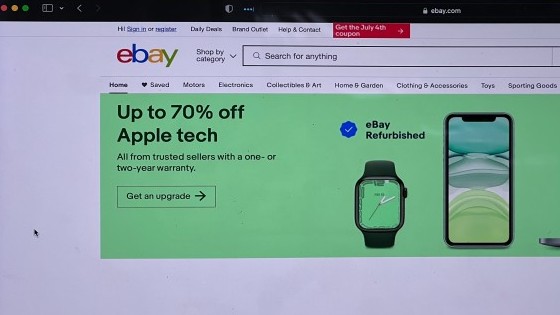
Streamline Your eBay Business Finances and Maximize Profitability with Expert Accounting Tips
Streamline Your eBay Business Finances and Maximize Profitability with Expert Accounting Tips
Running an eBay business can be an exciting and profitable venture. However, as a seller, it is crucial to stay on top of your financial management to ensure long-term success. In this blog post, we present the eBay Business Accounting Guide for Sellers—a comprehensive resource that simplifies financial management for eBay sellers. Whether you're new to selling on eBay or looking to optimize your accounting practices, this guide will equip you with the knowledge and strategies to effectively manage your finances and maximize profitability.
One of the first steps in eBay business accounting is to establish a clear separation between your personal and business finances. Open a dedicated business bank account to track all your eBay-related transactions. This separation will make it easier to manage your finances, track sales, and calculate accurate profit margins.
Maintaining accurate records of your eBay sales and related expenses is essential for proper accounting. Track each transaction, including the sale price, shipping costs, eBay fees, and any other associated expenses. By keeping detailed records, you'll have a clear overview of your financial performance and be better prepared for tax reporting.
As an eBay seller, it's important to have a thorough understanding of the fees associated with your listings and transactions. Familiarize yourself with eBay's fee structure, including insertion fees, final value fees, and additional services fees. Calculate and factor in these fees when determining your selling prices and profit margins.
If you sell physical products on eBay, effectively managing your inventory and calculating the Cost of Goods Sold (COGS) is crucial. Implement inventory tracking systems to ensure accurate stock management. Determine your COGS by considering the direct costs of acquiring or producing each item, including purchase price, shipping fees, and any other related expenses.
Maintain a systematic approach to organizing receipts and invoices related to your eBay business. Digitize paper receipts and keep them in a secure folder or use accounting software to store digital copies. This practice will simplify expense tracking, help with reconciling transactions, and ensure compliance during tax season.
Consider adopting bookkeeping software or tools specifically designed for small businesses and eBay sellers. These platforms can help streamline your accounting processes, automate calculations, generate financial reports, and simplify tax preparation. Establish a regular schedule for recording and reconciling transactions to maintain accurate and up-to-date financial records.
As your eBay business grows or if you find accounting overwhelming, it may be beneficial to seek professional accounting support. Engage a qualified accountant who specializes in small businesses or e-commerce to assist with complex financial matters, provide guidance on tax obligations, and help optimize your financial management strategies.
Managing the accounting aspects of your eBay business is vital for long-term success and profitability. By implementing the eBay Business Accounting Guide for Sellers, you can streamline your financial management practices, gain better control over your finances, and maximize your eBay business's potential. Remember to separate personal and business finances, maintain accurate records, understand eBay seller fees, monitor inventory and COGS, stay organized with receipts and invoices, implement effective bookkeeping practices, and seek professional accounting support when needed. With these strategies in place, you'll be well-equipped to navigate the financial aspects of your eBay business and achieve your goals.
Disclaimer: Please be advised that the content of this blog is meant to serve as general information only, and should not be considered as tax advice. Given the complexity of tax laws and the potential for regulatory changes, it is strongly advised that you seek the guidance of a qualified tax professional or financial advisor prior to making any decisions based on the information contained in this blog. Please note that neither Gondal Accountancy nor its staff assume any responsibility or liability for any decisions made or not made as a result of the information presented in this article.
Interested in learning more about our Dedicated Accounting Services tailored for Small Businesses?
Get your free, no-obligation consultation from our professional accountants today!